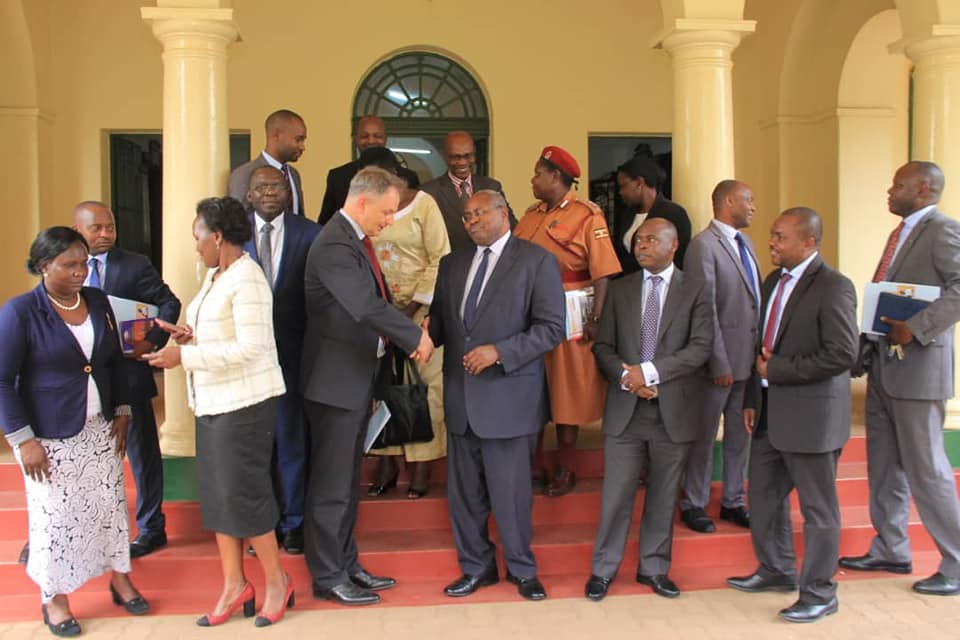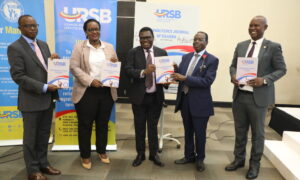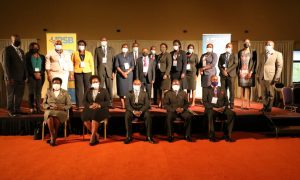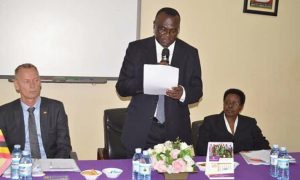
Judiciary sets 13 Special court sessions to clear 1,000 SGBV Cases in Kampala
KAMPALA: ĺlĺ Courts have planned to hold 13 special sessions in different parts of the country, targeting to clear at least 1,000 cases of Sexual and Gender-Based Violence (SGBV) in 40 days.
The United Nations Population Fund (UNFPA) is to fund the special criminal sessions between November and December 15 this year, starting with a joint training session, which is planned for October 29.
Selected courts include the High Court Criminal Division in Kampala; High Court Circuits of Moroto, Soroti, Masaka, Mukono, Gulu, Bushenyi and Mbale; and the Chief Magistrates Courts of Nabweru, Iganga, Lira, Kapchorwa and Sironko.
“Each judicial officer has been assigned between 50 and 100 cases for disposing of within the 40 days. We expect some of them to clear up to 100 cases, taking into account the Plea Bargain procedure,” said the Principal Judge, Dr. Yorokamu Bamwine, on Friday.
Dr. Bamwine was chairing a high level Justice, Law and Order Sector (JLOS) stakeholders meeting at the Judiciary headquarters in Kampala, which was also attended by the UNFPA Country Representative, Mr Alain Sibenaler.
Mr. Sibenaler said UNFPA is happy to fund the pilot special sessions. If successfully executed, the Agency may consider supporting funding the setting up of a special court for SGBV cases.
According to the Project Coordinator, Justice Gadenya Paul Wolimbwa, attention was drawn towards the SGBV cases such as defilement, rape and domestic violence, because they constitute 62 percent of the cases in the High Court.
The selection of the participating courts was informed by the Police Annual Crime Reports as well as statistics from the Judiciary. The Office of the DPP Performance Report of 2015/16 indicates that a total of 211,487 SGBV cases were recorded.
The cases are to be handled in a gender responsive and victim friendly manner so as to advance access to justice for survivors and improve the experience of the survivors in the justice system as well as reduce backlog of SGBV cases.
Representatives of JLOS institutions such as the Police, Prisons, Office of the DPP, Uganda Law Society and the Government Analytical Laboratories, expressed their readiness to expeditiously dispose of the cases during the special sessions.
“We have built capacity. We recruited detectives specifically for sexual offenses and we now have 80 percent coverage of the whole country,” said Grace Akullo, the director of the Police Criminal Investigations Department.
Participating judicial officers include High Court Judges: Masalu Musene (Moroto); David Batema (Soroti); Dr. Winfred Nabisinde (Masaka); Margaret Mutonyi (Mukono); Stephen Mubiru (Gulu); Dr. Flavian Zeija (Bushenyi); Tadeo Asiimwe (Mbale); and Jane Francis Abodo (High Court Criminal Division, Kampala).
Chief Magistrates: Esther Nansambu (Nabweru), Hellen Ajio (Iganga), Janeva Natukunda (Lira), Teko Lokeris (Kapchorwa) and James Ereemye Mawanda (Sironko).
The project is expected to strengthen chain of justice/systems that provide expedient and victim friendly justice to survivors of SGBV; increase collaborative management, partnerships and networking between key stakeholders for SGBV cases; strengthen systems for management of SGBV related data and information; as well as Best practices identified to inform the establishment of a special GBV court. After the cases, there are plans to have post session meetings to evaluate the performance of the special sessions, get success stories and lessons that will later be documented and inform the way forward.




























